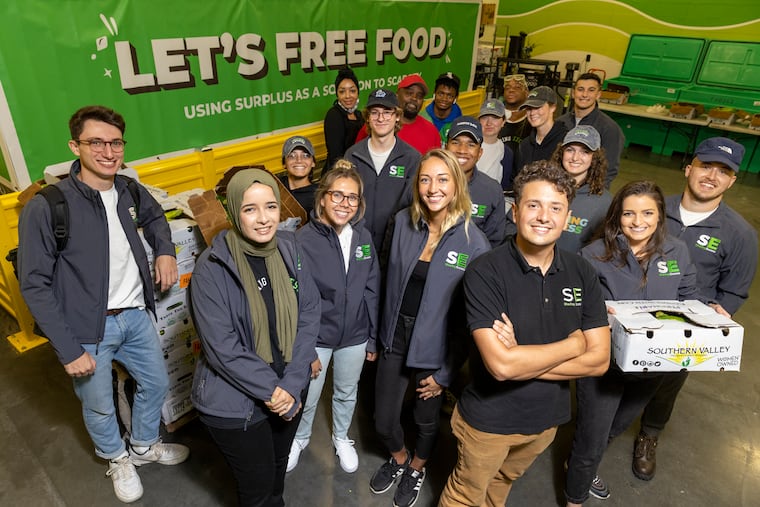Philly food rescue nonprofit Sharing Excess receives $250K grant from Pew
The funds will allow Sharing Excess to expand its footprint to Baltimore and Washington, D.C., and make key hires in sourcing, fundraising, and technology development.

Philly food rescue startup Sharing Excess has redistributed 16 million pounds of food in five years, providing the equivalent of 12.5 million free meals to whoever needs them. That’s been a boon not only for hungry families but also regional food banks and food-insecurity organizations like Philabundance and Share Food Program, who partner with the nonprofit.
Now, Sharing Excess is getting support from another Philly organization, Pew Charitable Trusts. Pew is giving Sharing Excess $250,000 over two years so it can increase its capacity to rescue and redistribute from 13 million pounds annually to more than 20 million pounds of food. The funds will allow Sharing Excess to expand its footprint, and make key hires in sourcing, fundraising, and technology development.
“[We] really felt this was an important topic given the end of COVID-era benefits like the SNAP emergency allotment,” said Pew project director Kristin Romens. “We thought it was a good time to support an innovative and scalable potential solution to food insecurity.”
While it’s easy to find food banks in need of food, establishing partnerships with donors requires more strategy, said founder Evan Ehlers.
“It’s often a long-term approach. We have to work through a lot of different people in a ladder and we’ll often do pilots,” he said. “You almost need somebody like a salesperson to go and find all that food.”
Sharing Excess has proven its ability to develop these kind of relationships. In July 2021 it set up shop inside the Philadelphia Wholesale Produce Market, where it continues to operate, rescuing and redistributing well over 6 million pounds of perfectly good produce in a little more than a year. It also gave out roughly 380,000 avocados in FDR Park last year — in a widely covered event dubbed “Avogeddon” — thanks to a partnership with the Farmlink Project, a California-based nonprofit. The team has also partnered with Uber and WARP, a logistics company that is facilitating their work with Trader Joe’s stores outside of Baltimore and Washington.
The invite-only Pew grant is the largest Sharing Excess has received in its five-year existence. Part of it will go toward hiring someone to help the nonprofit secure more funding, with a split focus between grant writing and individualized fundraising.
“We really want to find someone that already has the established network to be able to tell our story ... maybe in the same way that they they have fundraised for other large food banks in the past,” Ehlers said.
The final aspect of the grant will allow Sharing Excess to hire a technology director who can round out its open-source food-rescue app. Currently, the app encompasses a database of Sharing Excess’ partners, routing software for pickups and deliveries, and analytics to track the food it’s received and redistributed. In the future, the team hopes to add functionalities for food businesses and food banks alike, creating a single, streamlined food-rescue platform.
“This can enable other nonprofits specifically focused on food rescue to have their own networks and start functioning in the way that we have,” Ehlers said. “And it would be totally free.”
Sharing Excess started small in 2018, when Ehlers launched the nonprofit as rising senior at Drexel University. While he initially donated surplus meal swipes to anyone in need, he soon expanded the organization’s mission to picking up surplus food from the likes of Trader Joe’s and Saxby’s. It grew exponentially during the pandemic and even more so after it established a presence in the Wholesale Produce Market, where it has diverted more than 50% of the market’s waste from the landfill.
That was another part of the appeal to Pew, Romens said. “They’re sort of combining the environmental impact of food waste. The huge impact that redistributing perfectly usable, healthy food has in our city is really exciting for us.”